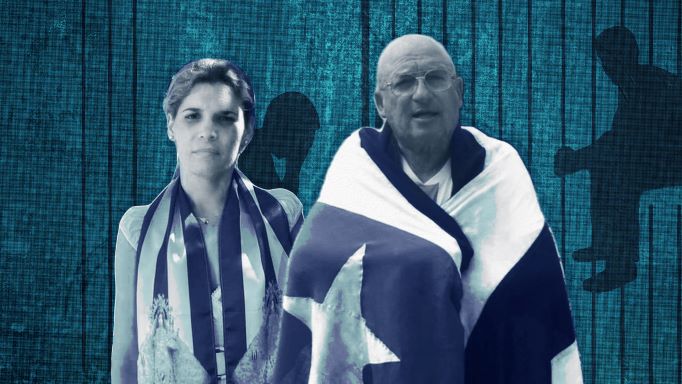The case of Cuban opposition leader Félix Navarro, recently sentenced to nine years in prison for participating in the 11J protests, demonstrates that for the Cuban courts, when applying the powers granted to them by law, and which can benefit the accused, ideology trumps age or health problems.
Navarro, a former political prisoner of the "Group of the 75" and coordinator of the Pedro Luis Boitel Movement for Democracy, is a 68-year-old man whose sentence could have been reduced to five years in prison had the court taken into account Article 56.1b) of the current Penal Code and the powers granted to it by Article 17.2.
According to the latter, "the minimum sentence in cases of incarceration may be reduced by up to one third in cases of persons over 60 years of age at the time they are tried."
This reduction is applied within the frameworks governing the punishment of each crime, and then a joint sanction is applied, in accordance with Article 56.1b), this being possible in cases of persons responsible for two or more crimes for which a sentence has not yet been issued. In such cases, when they involve incarceration, the court may impose a single, or combined, sanction, which may not be less than that corresponding to the most severe crime, nor exceed the total sentence if the time to be served for each crime were added up.
In Navarro’s case this reduced sanction in consideration of the age of the accused, a prerogative of the court that the judge may apply, or not, at his discretion, was not applied. In his case, neither the age nor the illnesses that the political dissident suffers were taken into account when determining his sentence, nor were the violations of the Criminal Procedure Law that was in force when he was imprisoned.
Navarro was not even arrested during the protests that broke out on July 11 in several Cuban cities, but rather the following day, when he went to the police station in Perico, Matanzas to inquire about members of his party arrested during the demonstrations.
He was not an offender in flagrante delicto, he did not qualify as a fugitive from justice, nor was he a defendant declared in absentia for a previous criminal proceeding. His presence in the police station caused no alarm, and he was not accused of a crime against State Security.
Despite all this, he was charged with "disturbing the peace" and "assault" after showing up at the police station to exercise his right to request and receive information from the State and to access information from State bodies, as established in Article 53 of the Constitution. At that point he was placed under provisional arrest, and to the aforementioned charges "contempt" was later added.
In September, two months after his arrest, DIARIO DE CUBA criticized in its analysis that the standard period of 60 days in which the investigative body and the designated prosecutor should have concluded the investigation, by order of the legislature, had been violated.
Article 107 of the Criminal Procedure Law then in force established that "the investigator is to carry out the investigative work in the preparatory phase of the case in the shortest time possible. The preparatory, investigative phase should not exceed 60 days from the date of its initiation, and may only be extended providing due justification to the investigator’s superiors, in accordance with that set down by the entity or body to which he belongs."
In cases of crimes such as the alleged "disturbing the peace" and "assault," the investigative phase does not usually require even two months. Navarro had been held for longer. It is in the case of serious crimes, such as embezzlement and armed robbery, that the investigator requires more time.
Six months later, the sentence of nine years in prison for the aforementioned crimes has been handed down, though it was Navarro who suffered a violent arrest when he was only trying to exercise a right.
His daughter, Sayli Navarro, also violently arrested when she accompanied him to the police station. Although she was free while awaiting trial on the same charges brought against her father, she was sentenced to eight years in prison.
The Federation of Cuban Women (FMC) has not spoken out about the violent treatment she received from the police, nor has it spoken out about the women imprisoned, mistreated and prevented from seeing their children after July 11, nor about those who have suffered repression before or after for expressing their disagreement with the regime or criticizing the human rights violations committed in Cuba.
As these are inmates with long sentences (the minimum sentence established by law is eight years of imprisonment) they will not be able to visit each other while serving their sentences, so the court controlled by the regime, in addition to not exercising the power that would have benefited Navarro with a shorter sentence, has subjected him and his daughter to the dual punishment of not being able to see each other for eight years.
